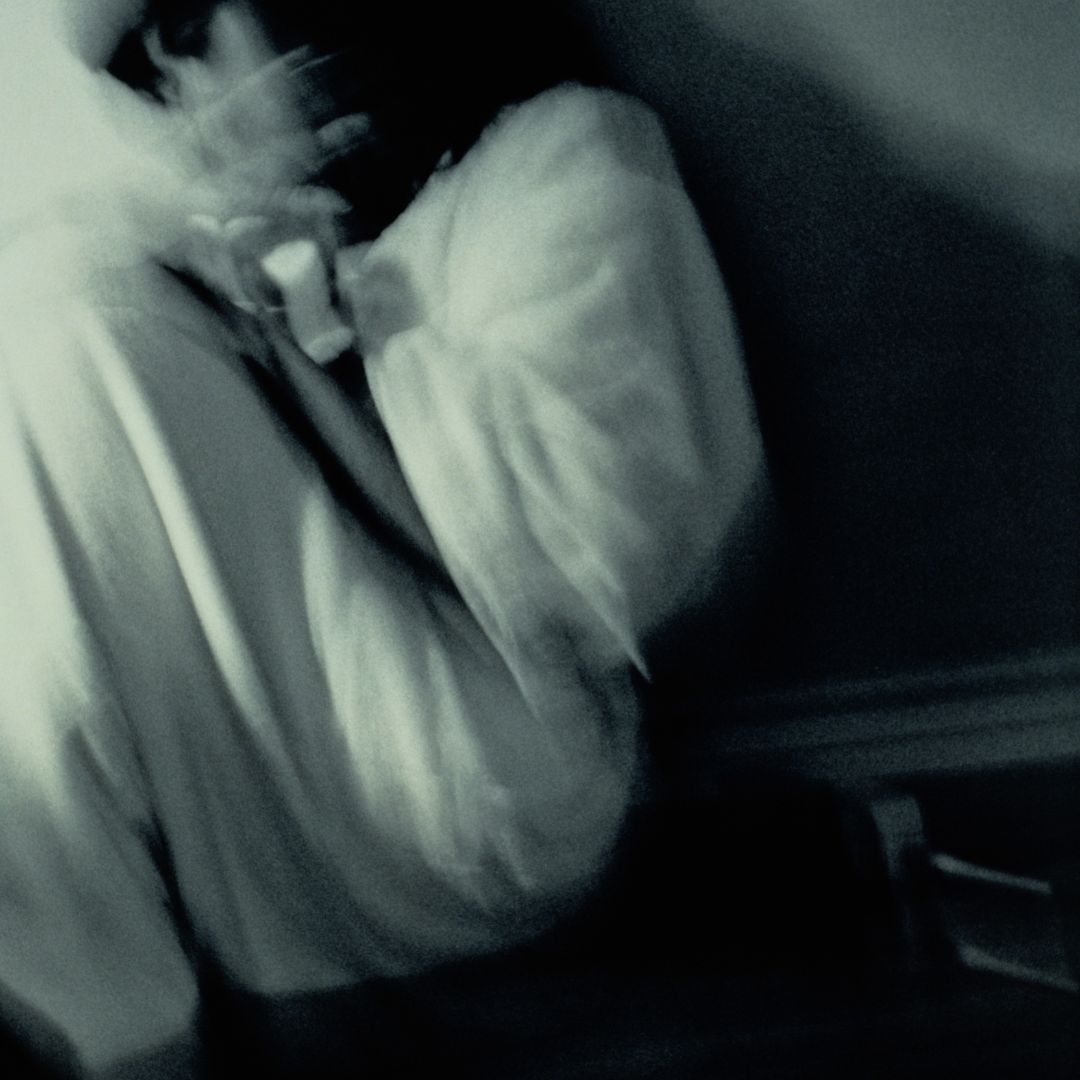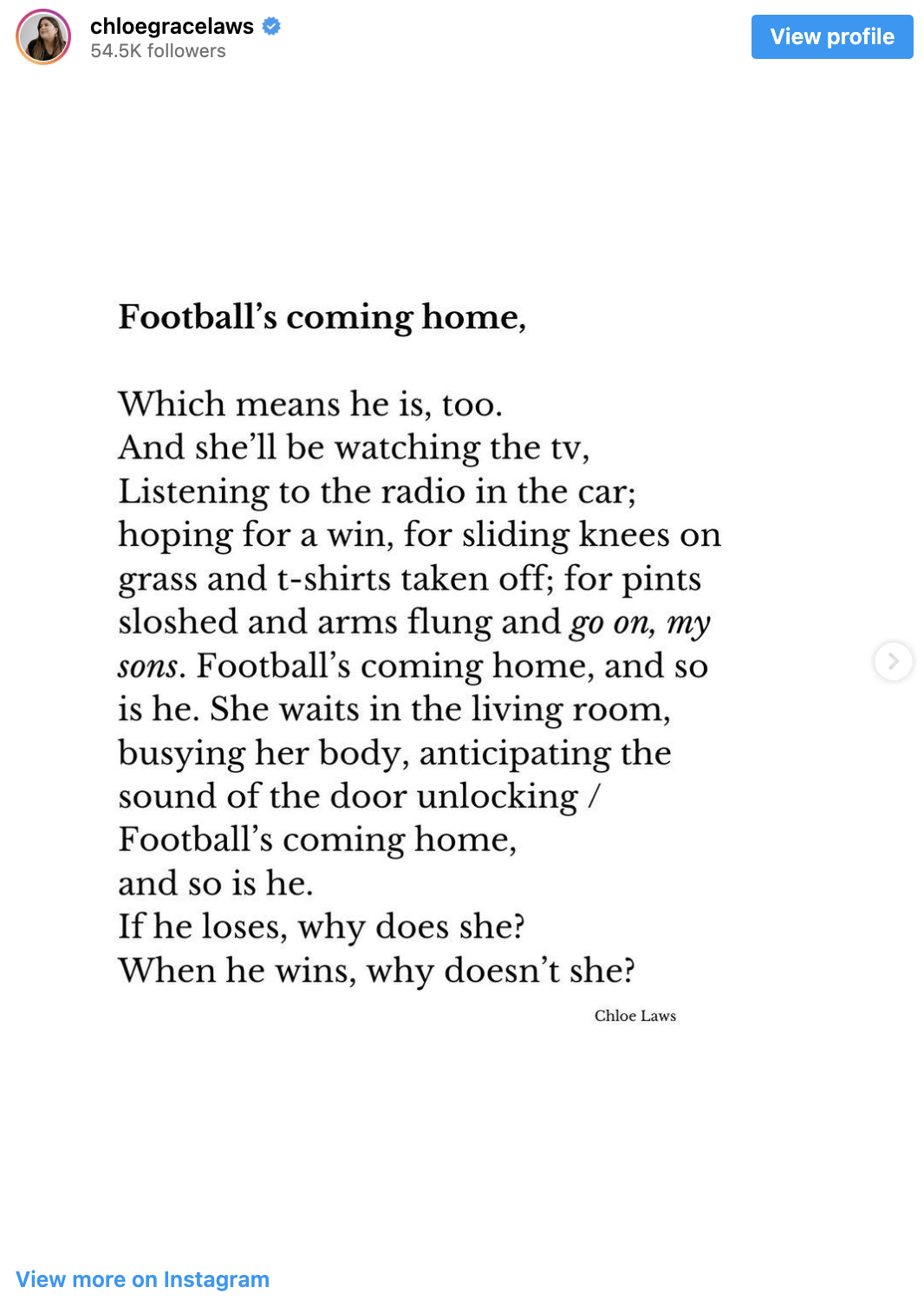
TRIGGER WARNING: This article contains themes of abuse and physical assault
A man has been jailed for 19 years for murdering his partner after a football match. The victim, Amanda McAlear, was killed at her home on 7 May 2022 by her partner of four years, John Higgins. She was found the following day by her son when he visited her home.
The full details remain unknown, but Higgins admitted to repeatedly punching Amanda McAlear before strangling her and then leaving her unresponsive in her own home, where she should have been safe. Though football-related violence is shockingly common—domestic abuse cases go up 38% when the England men’s team loses at a major tournament—arrest rates rarely correlate with incidents.
Nicola Miller, Chief Executive of The Dash Charity, says domestic abuse is a “unique trend in men’s football.” She explains that the spike in domestic abuse incidents is specifically linked to men’s football. “We don’t see the same pattern during the Six Nations Rugby or the Women’s Football World Cup - this suggests a unique cultural issue related to men’s football,” says Miller.
“I always dreaded the football season,” remembers Emma, a domestic abuse survivor. She says it was another excuse for her ex to get off his face - something he told her that lads “just do”. “For him, it was fun; for me it was fear,” she says; “fear of what mood he would be in when he came home, walking on eggshells, not knowing what abuse was coming next.” Emma isn’t alone, studies show that football is a risk factor for domestic violence. Research by Lancaster University revealed domestic abuse increased by 38% when England lost a match and 26% when they won or drew. Domestic abuse cases continued to rise in the 24 hours after a game regardless of the outcome.
It correlates with call records shared with us by The Dash Charity. In 2021, when England was playing in the Euros, the domestic abuse support service saw a staggering 79% increase in calls and referrals compared to the previous year.
While supporting our national team is exciting, it’s crucial to stay aware of the darker side of these events.
Nicola Miller, Chief Executive, The Dash Charity
“I realised last week how calm and free I feel with a football tournament starting and no risk of heightened issues at home,” reports *Anna. She fled an abusive relationship by using one of the UK’s Safe Spaces, a scheme she fears not enough women know about.
6,000 safe spaces across the UK can be found in high street banks and pharmacies, including Nationwide, HSBC UK, TSB, NatWest Group, Metro Bank, Superdrug, and Boots. Domestic abuse charity Hestia is urging victims to make use of these spaces. “For the majority of people, football tournaments will bring fun and enjoyment. But for others, it can be a terrifying time, with statistics shining a light on the darker side of football,” explains Sue Harper, Deputy Director for Domestic Abuse and Sexual Violence Prevention at Hestia.
Football should be a source of entertainment and joy for us all, but sadly, for many women up and down the country, this is not the case.
Teresa Parker, Head of Media, Women’s Aid
“In my experience, a tournament can be a licence for a man to drink,” says *Anna. She remembers feeling a knot in her stomach when her husband drank. “I was very anxious about shielding the children from him and things he would say and do.” *Anna knows how quickly domestic abuse can escalate, something she says comes as a shock to women.
Despite high-profile campaigns, many people hold onto old myths about domestic abuse, such as ‘she must have deserved it’, explains Charlotte Woodward, a training manager at the National Centre for Domestic Violence. According to the World Health Organisation, 1 in 3 women experience physical or sexual violence by an intimate partner during their lifetime. Statistically, someone within your close circle will have—and may still be—experiencing domestic abuse. The belief that ‘it could never happen to me’ is what keeps us shielded from the terrible reality that women worldwide are at risk.
Chloe Laws, a journalist and ambassador for Solace’s #NoMoreInjuryTime campaign, which aims to “Blow the whistle on domestic abuse”, says, “Domestic abuse and violence against women is systemic, and often we talk about it in very abstract terms and act as if it happens without people knowing.” She hopes that the campaign will make people feel less alone and make perpetrators think twice about their actions and identify it as abuse.

“I never would have imagined I would have needed it,” says *Anna. Despite living with an abusive partner, she didn’t think she’d ever find herself sitting in a cold cafe, ill and alone and desperately looking for a Safe Space. “It was one of the worst days of my life, but ultimately, one of the best, too, because the children and I have so much freedom and happiness now.”
Now she is free; she says she can see clearly how harmful her husband was and how heightened the experience was during football season. “We just couldn’t relax in our own home during these football tournaments, and I would be relieved when it was all over. I actually used to hope England would get knocked out fast.”
Nicola Miller, Chief Executive of The Dash Charity, says domestic abuse is a “unique trend in men’s football.” She explains that the spike in domestic abuse incidents is specifically linked to men’s football. “We don’t see the same pattern during the Six Nations Rugby or the Women’s Football World Cup - this suggests a unique cultural issue related to men’s football.”
Abuse is mainly about power and control, and any perceived loss of power – such as the loss of their team – may be used as an excuse for abusive behaviour.
Rosie Okumbe, Senior Communications Officer, Solace
“We know football itself isn’t the problem, but it has been associated with a culture where sexist comments are easily passed off as ‘banter’”, explains Rosie Okumbe, Solace’s campaign lead. The charity has partnered with the National Centre for Domestic Violence to release an ‘alternative England shirt’ emblazoned with the number 38, which represents the 38% increase in reports of domestic abuse when England loses. Okumbe hopes to address domestic abuse at the root. “Words matter, and an environment where it’s commonplace that women are the butt of a joke or reduced to an object can lead to increasingly concerning behaviour.”
Football has long been embroiled in sexism and misogyny. A BBC investigation found that seven out of 20 Premier League clubs have had players or bosses investigated by the police for sexual offences since 2020. Solace is reaching out to the football community and hopes they will want to be part of the solution. “We need everyone to get involved in the conversation,” explains Okumbe.
Football is trying to clean up its reputation. Women’s Aid has worked with footballing organisations, including the PFA, Premier League, PFA and FA, to help raise awareness of abuse. Many of the campaigns being launched aim to highlight the signs of abuse and encourage fans to call it out when they see it.
I actually used to hope England would get knocked out fast.
*Anna
“There are still far too many people across the country who regard domestic abuse as a private matter. All too often, victims are disbelieved or let down by our law enforcement and court systems,” says Hestia’s Sue Harper. She argues that we need a genuine political commitment as well as a society-level response to tackle this problem, “or victims will continue to lose their lives.”
The responsibility to call out abuse does not sit solely with women. Men also need to come forward and call out abuse when they see it. It’s why campaigns like Solace’s are so powerful - by putting the statistics on football shirts, it minimises the opportunity for people to feign ignorance. For decades, domestic abuse has been shrouded in secrecy and shame.
We can’t hide from the reality that 1 in 3 women worldwide will, at some point in their lives, experience intimate partner violence. As Parker says, we must come together and call out sexist and misogynist behaviours and attitudes when we see them. The shame doesn’t lie with the women and children being affected; it sits with the perpetrators and those who refuse to call out abuse at every level.
If you, or someone you know, is suffering domestic abuse, you can contact the national domestic abuse helpline on 0808 2000 247 or visit Women’s Aid or Refuge.
Anyone in immediate danger should always call 999.
Anyone looking for a space in a domestic abuse refuge can contact the Freephone National Domestic Abuse Helpline on 0808 2000 247, 24 hours a day, 7 days a week.







